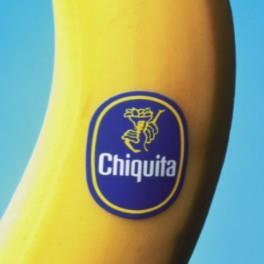
South Korean shoppers are up in arms and the country's food safety authorities are pledging to increase inspections of imported produce after discount retailer E-Martsold Chiquita bananas from the Philippines containing high levels of pesticides, reports the Korea Times.
E-Mart and its supplier Shinsegae Food said they immediately withdrew the Chiquita bananas when notified by food safety authorities that the banana skins contained 1.79mg of iprodione - a hydantoin fungicide - per kilogramme (89.5 times the permissible level of 0.02mg).
Korea's Ministry of Food and Drug Safety, which approved the banana imports in question, has come under criticism for its inadequate monitoring of imported agricultural products, the paper said.
According to E-Mart and the Ministry of Food and Drug Safety, 167 boxes of Chiquita bananas weighing 2.17 tonnes were sold at 59 outlets in Gyeonggi Province and Gangwon Province on 16 October. Shinsegae Food had previously delivered a total of 1,000 boxes to E-Mart stores.
E-Mart said the bananas were on the shelves only for a couple of hours, stressing that it was unaware of the high level of pesticide, and that the store immediately notified customers who purchased the bananas to return them.
Korea's Ministry of Food and Drug Safety had approved the banana consignments without testing for MRLs, the report said.
''It is impossible to test every single imported fruit in reality,'' a ministry spokeswoman told the paper. ''We previously conducted thorough inspections on this brand of bananas in the past and did not detect high levels of pesticide. Since then, we have only been doing sensory tests. Municipal administrations are also required to test imported agricultural products after they are approved here.'
The spokeswoman said the ministry will strengthen its inspection on imported bananas and other fruit. ''Importers have to pay our test expenses, meaning that in this case, Shinsegae Food will have to pay more to finance our extensive inspection. In addition, the firm has to store imports longer at warehouses, which causes an additional financial burden.'
A Shinsegae Food spokesman told the Korea Times that Korea's MRL standards for imported fruits are too strict, saying that it has become harder to find foreign producers who can meet the country's rigorous legal requirements. 'The permissible level used to be 5mg per kg, but from 12 September imported bananas have to contain no more than 0.02mg. Under the previous standard, the bananas causing this issue now would have caused no problems.'
The spokesman said Japan's permissible level is 10mg per kg, while China has no standard for the level of iprodione, stressing that the company will have a harder time finding foreign producers that can meet domestic requirements.
'Most of the bananas we import from the Philippines do not have a problem. Only the ones produced at one particular farm contain the high level of pesticide. We are trying to figure out what happened there,'' he added.



